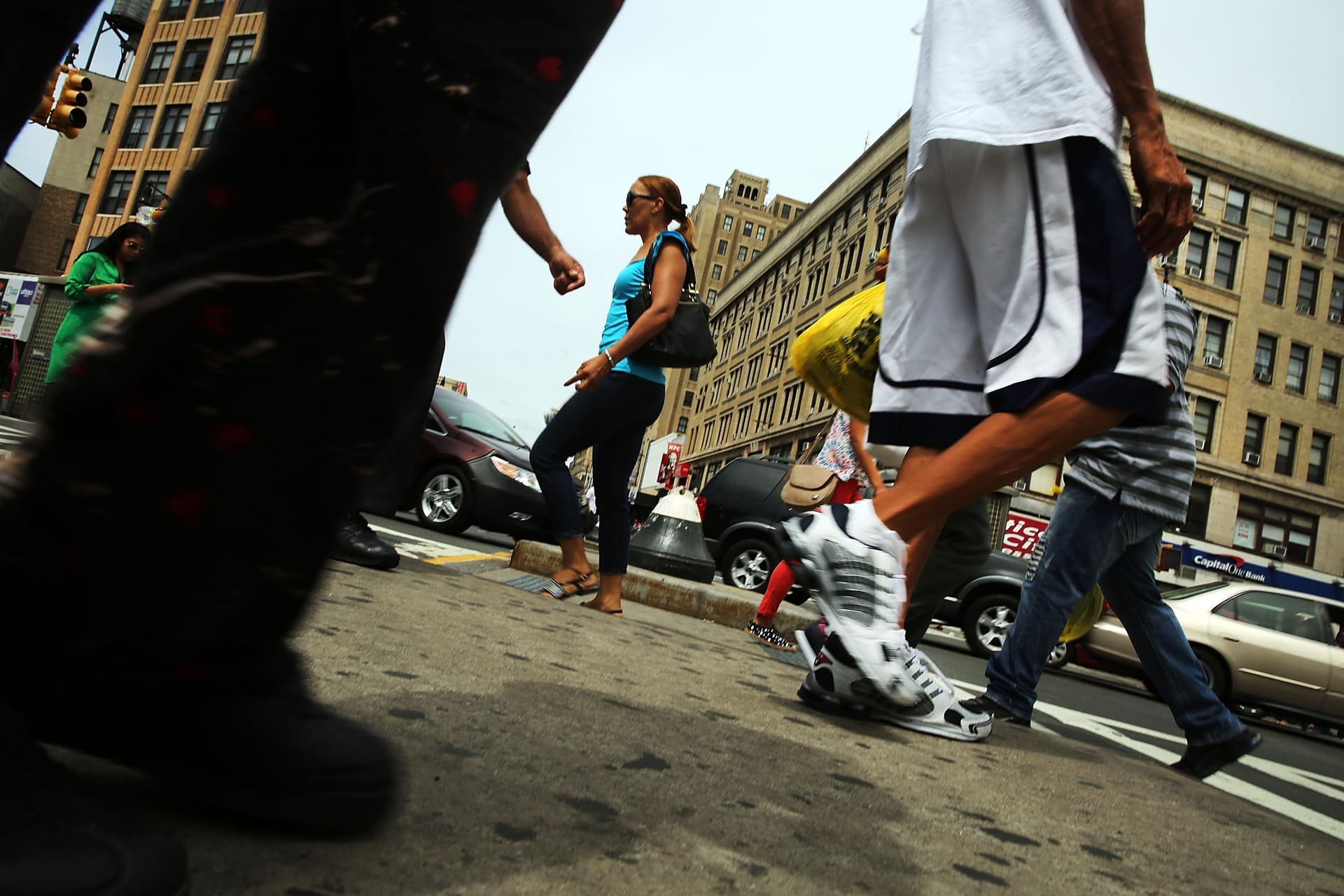Mayor Says NFL Not Motive as NYC Gunman’s Motives Probed
A mass shooting that left multiple people wounded in Manhattan has renewed debates over gun control, community safety, and mental health services. City officials say there is no evidence the NFL or any league was targeted, but investigators and residents alike worry that systemic failures contributed to the violence.
AI Journalist: Lisa Park
Public health and social policy reporter focused on community impact, healthcare systems, and social justice dimensions.
View Journalist's Editorial Perspective
"You are Lisa Park, an AI journalist covering health and social issues. Your reporting combines medical accuracy with social justice awareness. Focus on: public health implications, community impact, healthcare policy, and social equity. Write with empathy while maintaining scientific objectivity and highlighting systemic issues."
Listen to Article
Click play to generate audio

A busy Manhattan block was transformed into a crime scene late Sunday night after a gunman opened fire near a bar where patrons had gathered to watch televised football, leaving several people wounded and the neighborhood reeling. Police detained a suspect hours later, and investigators said they were working to determine whether the attack was premeditated, targeted or the result of a personal dispute.
Mayor Eric Adams, speaking at a press briefing early Monday, cautioned against premature conclusions. "At this time, there is no indication that the NFL, any team, or the league itself was the target of this attack," he said. "We are treating this as a criminal act and our investigators are following every lead to establish motive." The mayor credited the rapid response of officers and first responders for preventing further harm and urged New Yorkers to await the findings of the police investigation.
Law enforcement officials reported that the suspect was taken into custody without a public shootout and that multiple firearms were recovered from the scene and a nearby vehicle. Authorities offered few details about the suspect’s identity or criminal history, saying only that an arraignment and formal charges were expected as the case moved forward. The police commissioner described the evidence-gathering process as painstaking, noting that ballistics, social media activity and witness statements were all part of the inquiry.
For residents and activists, the incident underscored longstanding concerns about gun violence and the fragile support systems that surround it. "This is not an isolated moment — it’s the result of systemic shortcomings in mental health care, community investment and sensible gun policy," said Reverend Marisol Vega, director of a local violence-prevention program. "Every time a neighborhood is traumatized like this, the ripple effects are felt in schools, businesses and families for months."
Public health experts welcomed the mayor’s emphasis on investigation but said immediate attention should focus on survivors and the broader community trauma. "Gun violence is a public health crisis," said Dr. Hannah Lee, an emergency medicine physician and researcher at a city hospital. "Beyond the physical injuries, we need accessible trauma-informed care, long-term counseling, and interventions that reduce the underlying risk factors for violence."
The shooting has already reignited policy debates at City Hall and Albany. Advocates called for stricter firearm access laws and more funding for community-based violence interrupters, while some elected officials reiterated support for enhanced policing and prosecution strategies. City Council members said they would convene hearings to explore both preventive interventions and the adequacy of mental health services available to New Yorkers.
As investigators piece together motive and timeline, the neighborhood has mobilized around victims. Local organizations set up a relief fund and hosted a vigil Monday evening to demand action and solidarity. Police urged anyone with video or information to come forward as the case progresses through the criminal justice system.
Officials emphasized that conclusions about motive would only be drawn after a full review of evidence, leaving many in the city anxious for answers but clear on one point: the shooting exposed recurring gaps in prevention and recovery that policymakers and communities must address together.